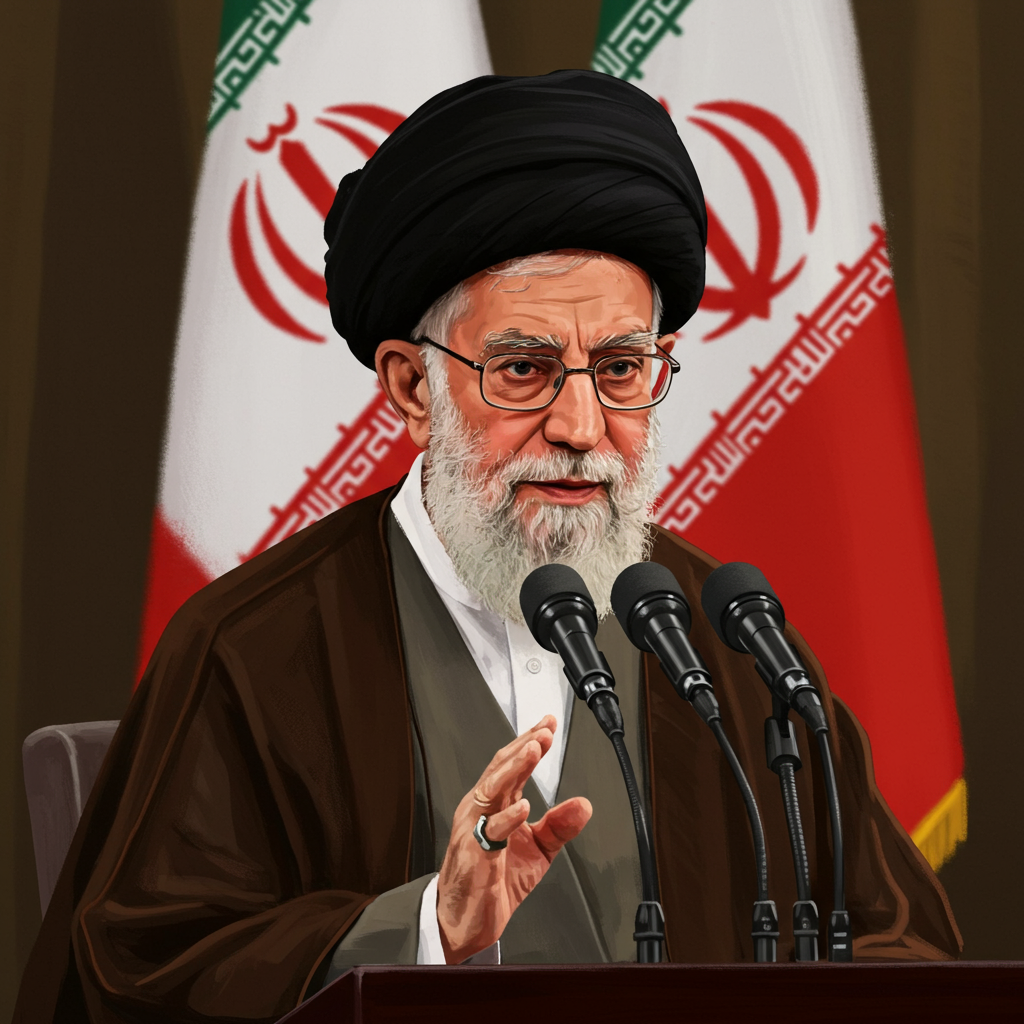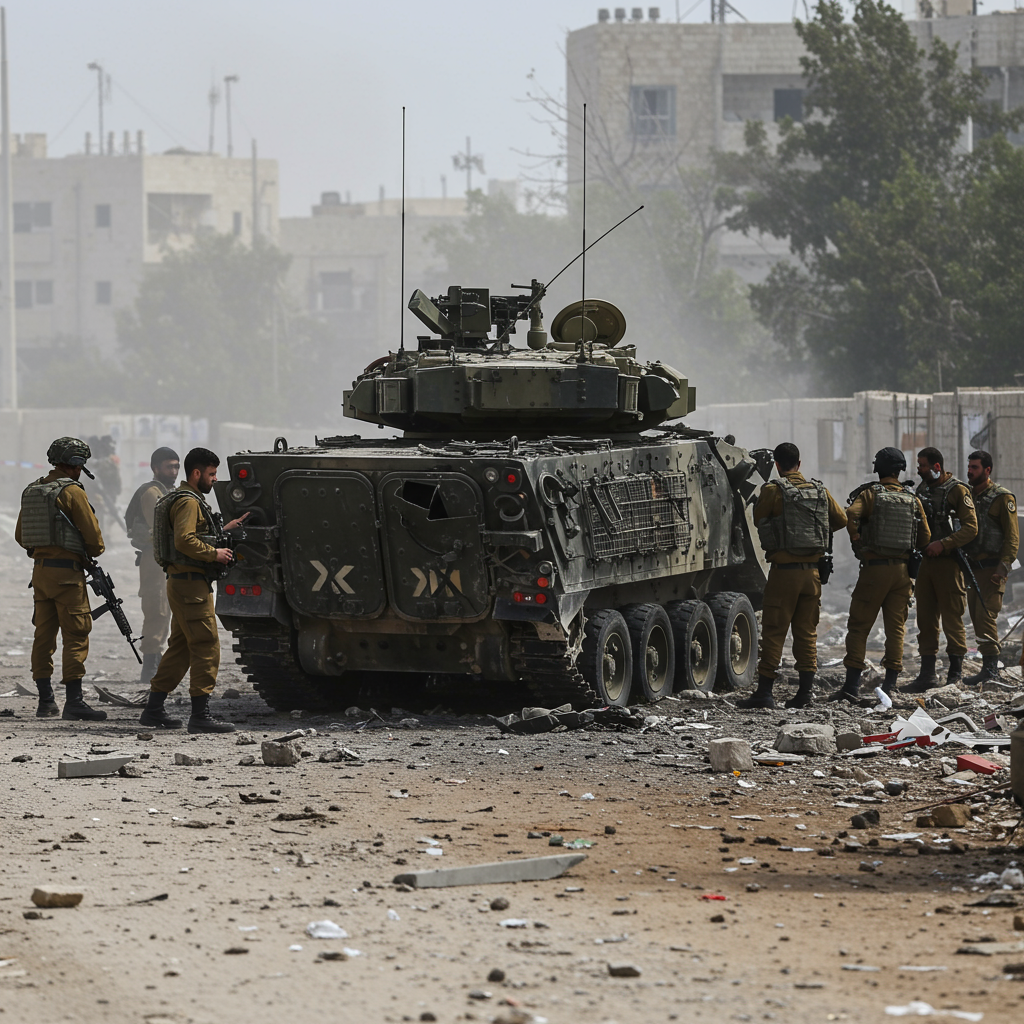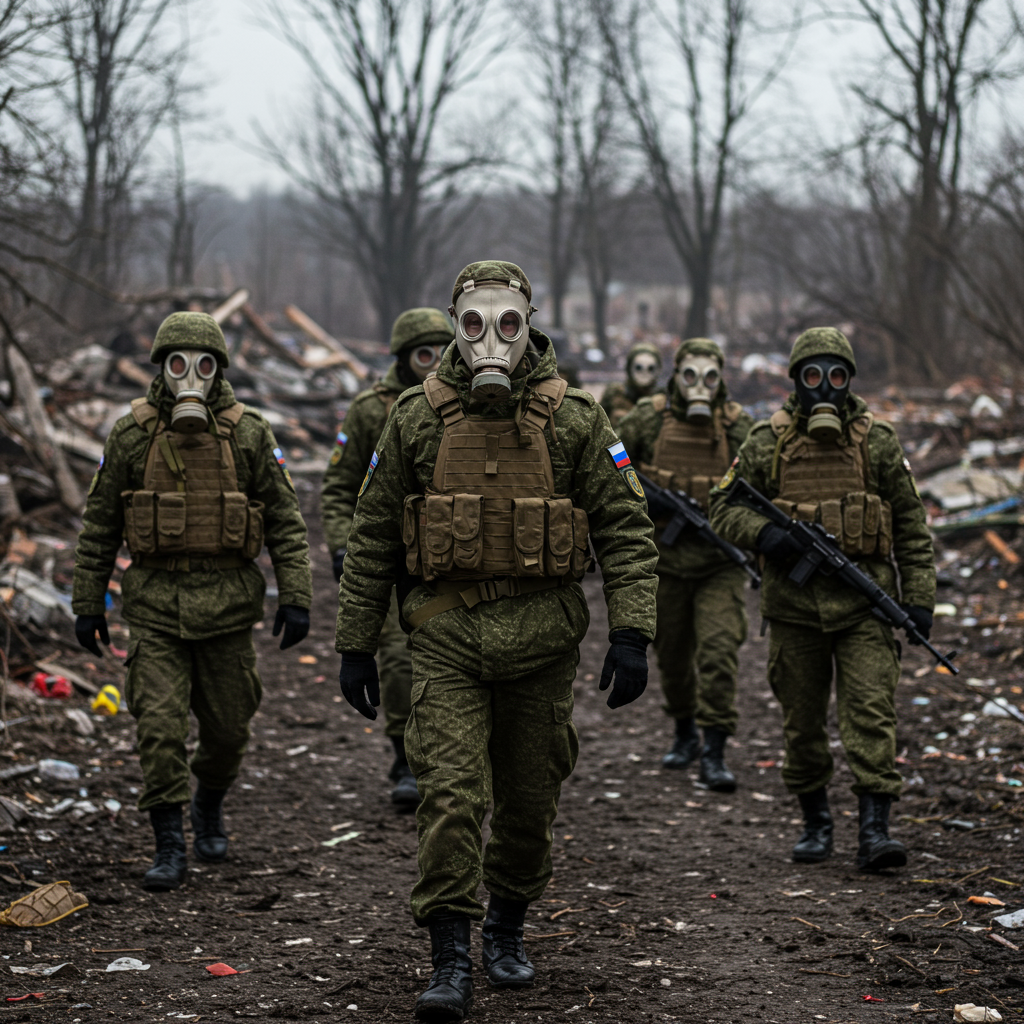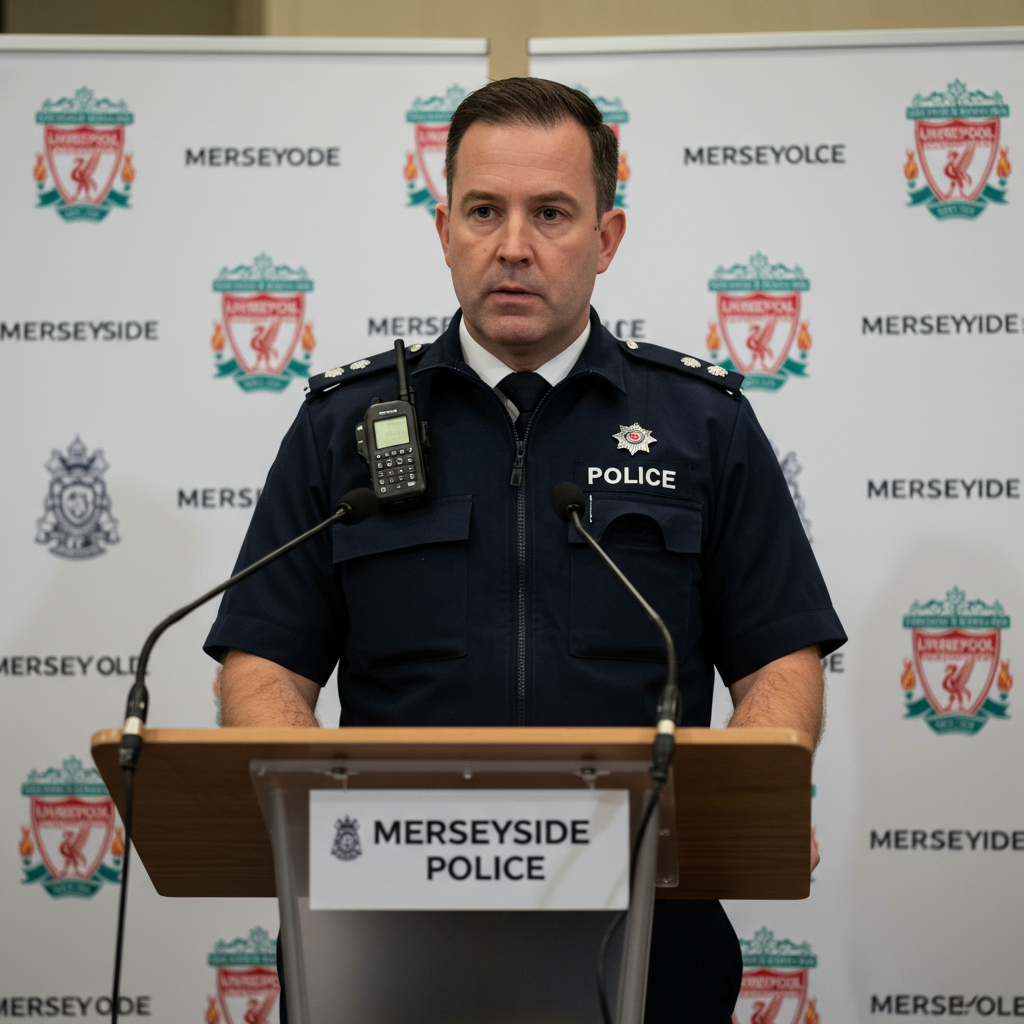In his first public remarks since the US-brokered ceasefire with Israel took effect, Iran’s Supreme Leader, Ayatollah Ali Khamenei, declared that his country had delivered a “heavy slap to the US’s face” and threatened further attacks on American military bases in the Middle East.
Speaking on Thursday, Khamenei claimed that the United States “gained no achievement” by directly entering the recent conflict alongside Israel. He asserted that the US intervened solely because it feared the “Zionist regime would be completely destroyed” otherwise, attempting to save Israel from collapse but ultimately failing to achieve its goal.
The “Heavy Slap” and Future Threats
Khamenei specifically cited Iran’s missile attack on the Al-Udeid Air Base in Qatar on Monday as the “heavy slap.” He stated that Iran “attacked and inflicted damage” on this key US base in the region.
Echoing this sentiment, Khamenei issued a stern warning: Iran’s access to “important American centers in the region” and its ability to take action is a “major incident” that can be “repeated in the future if an attack is made against Iran.” He vowed that Iran would “never surrender” to the United States, rejecting earlier calls for “unconditional surrender” by US President Donald Trump.
While Iran claimed to have inflicted damage, Qatar’s foreign affairs ministry spokesperson stated that their air defenses successfully thwarted the attack and intercepted the Iranian missiles, resulting in no casualties. US President Donald Trump also dismissed the Iranian attack as “very weak,” claiming 13 out of 14 missiles were intercepted.
Nuclear Program in Focus Amidst Tensions
Khamenei’s comments come against the backdrop of recent US and Israeli strikes targeting Iran’s nuclear facilities. He dismissed Trump’s claims about “obliterating” Iran’s nuclear program as mere exaggerations.
However, an Iranian Foreign Ministry spokesperson has admitted that the nuclear facilities sustained “severely damaged” from the strikes, acknowledging an ongoing debate within Iran about potentially withdrawing from the Nuclear Non-Proliferation Treaty (NPT).
In response to the attacks and citing the UN nuclear watchdog’s (IAEA) failure to condemn them, Iran’s parliament unanimously approved a bill to suspend cooperation with the IAEA. This legislation, awaiting final ratification, mandates conditions for resuming inspections, including guarantees for the security of nuclear facilities. Parliament Speaker Mohammad Bagher Qalibaf stated cooperation wasn’t possible until facility security was ensured. This move has reportedly been opposed by Russia.
Intelligence assessments regarding the impact of the US strikes remain mixed. European intelligence sources suggest Iran’s stockpile of highly enriched uranium largely survived the attacks, contradicting US administration statements. IAEA chief Rafael Grossi has also reportedly suggested much of the uranium might have been moved.
US officials, including President Trump and Defense Secretary Pete Hegseth, have defended the strikes as “devastating” and successful, denying that nuclear material was moved from key sites like Fordow.
Despite the heightened rhetoric, a US special envoy has indicated willingness to resume talks with Iran on future cooperation in Oman, though Iran has not yet confirmed attendance.




